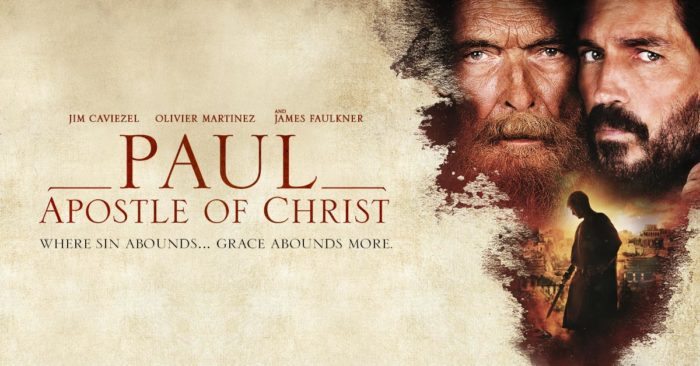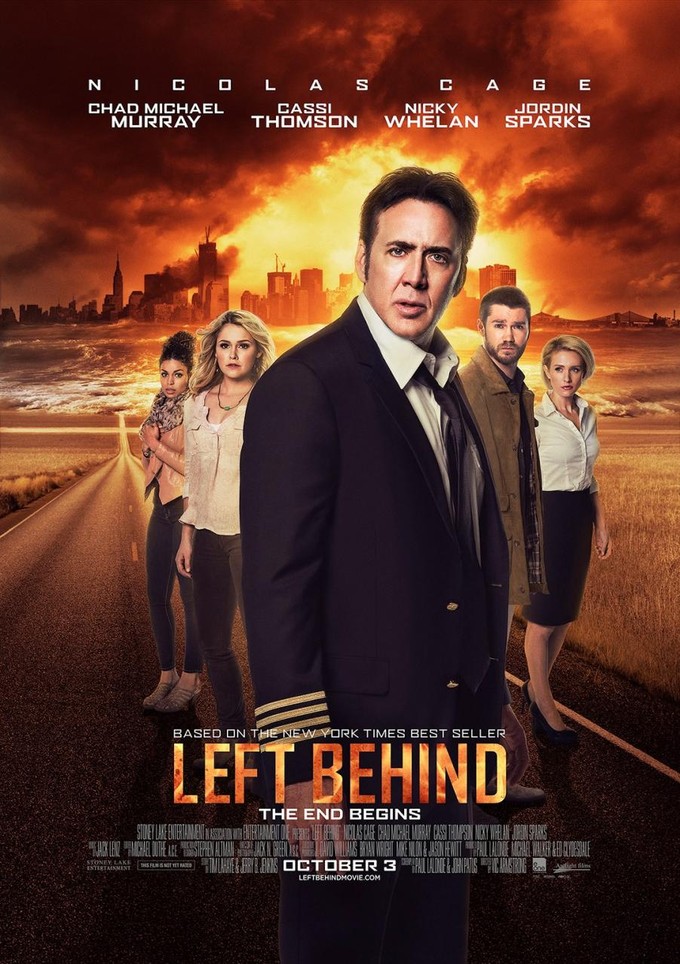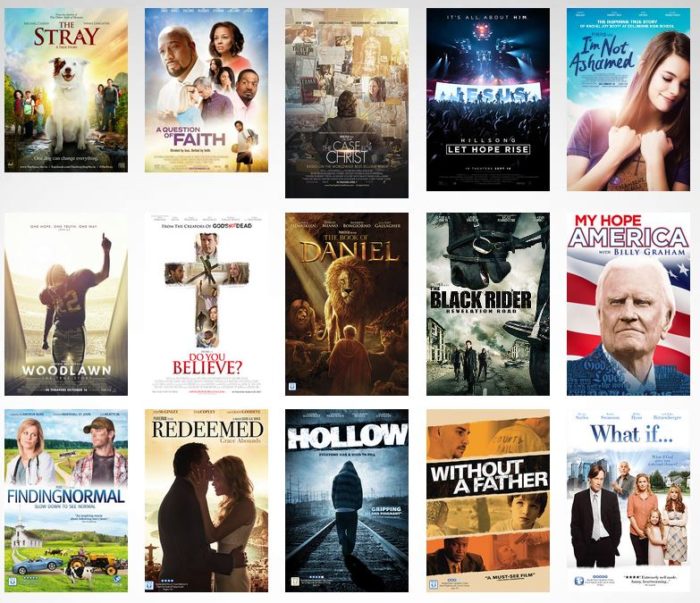Four Biblical Critiques of Christian Movies
Suddenly, this very spring, Christian movies got a lot better.
I base this statement on at least two decently reviewed Christian movies:1
- I Can Only Imagine (reviewed here by our own Rebecca LuElla Miller).
- Paul: Apostle of Christ, (which Miller also reviewed here).
Add to that 2017’s excellent docudrama-with-apologetics film The Case for Christ, and 2016’s even more excellent biblical fiction Risen, and perhaps we can count Christian movie quality on the ascendancy. Meanwhile, God’s Not Dead 3 didn’t do as well as the first two film, yet some critics acknowledged even that film offered some self-awareness about the risks of these films’ arguable culture-warmongering and wish-fulfillment.2
We have to concede this, and rejoice about this ascendancy, before we have us any more internet articles about What’s Wrong with Christian Movies!!1!.
Of course, I’ve explored Christian movies, their praises, and criticisms, in articles like these:
- Great Christian Movies about the Resurrection, April 17, 2017
- Six Shallow Criticisms of Christian Movies, Feb. 2, 2017
- 21 Challenges for Christian Movie Critics and Fans, three-part series, Sept. 2015
But only recently did I ponder a more specifically biblical basis to critique Christian movies.
1. Christian movies have too much Proverbs, not enough Psalms.

The fool fails to allow humble Christians on their team, and suffers great loss. / Not so the wise! They uplift talented faithful players, and seek the Lord, and thus always win the big game.
The book of Proverbs is part of the Old Testament’s “wisdom literature.” It offers truisms, principles, and generalizations about various kinds of people: the God-seeker versus the God-hater, the wise versus the foolish, the prudent versus the simple, and like-so.
Reading Proverbs calls for wisdom. This is especially because, for example, the lazy person does occasionally make out like a bandit, while the wise preparer hits bankruptcy. Proverbs explores general truths for God’s people, and often the world in general. Its verses do not guarantee complete success if you follow any “if you do X, then you’ll get Y” formula.
Can you start to see how many Christian movies—such as the Kendrick films, the God’s Not Dead franchise, and perhaps last week’s reviewed movie Meant to Be—seem to align closer with Proverb-style generalizations about life?
By contrast, the book of Psalms offers 150 songs from David and different creators. These showcase the entire spectrum of human emotion among God’s people. With God’s direct inspiration all along, the Psalmists cry out in praise, wonder, awe, suffering, anguish, fear, anger, love, pleading, confusion, longing, hating. Often we find a whole set in one Psalm.
When you read the Psalms, you read humanity in all its complexity—even questioning or doubting God, at least in one portion of the particular Psalm. Plot twist: it turns out God endorses, and in this case even inspired, even creative expressions of challenge to him.
That’s why I say: we need more Psalmody in Christian movies. Rather than just presenting general truisms, fans should begin to see the full expression of humanity in these stories.
2. Christian movies have too much James, not enough Romans.
Poor James. Even Martin Luther frowned on this red-headed stepchild among the epistles. It’s not robust like Paul’s theology, full of Judaism symbol secrets like Hebrews, or off-the-walls insane like Revelation. Instead, James likes to explore various wisdom and behavior truths for Christians—often jumping from one idea to another. (However, a casual read-through may reveal there is a method to this smaller epistle’s madness.)
I think we’ve seen a few Christian movies like James. They’ll explore a simple idea, like “faith without works is dead” or “there’s power in the tongue to destroy.” And that’s it.
I wouldn’t do without these themes any more than I’d reject the book of James itself. But we could also use more Christian movies that flesh out key themes of robust doctrine works such as Romans—or any of Paul’s epistles (perhaps including Hebrews).
Imagine, say, a biblical drama about a fictitious Jewish man perturbed by this “Christian” movement. Then he goes on a Case for Christ–style quest to discover the secret symbolism of the Day of Atonement and the tabernacle ceremonies. Or imagine a fearless drama of the nonsense in the Galatian or Corinthian churches—until Paul takes memorable action.

Paul vs. The Corinthians: the perfect prequel in a Pauline life-story cinematic universe.
3. Christian movies have too much Ruth, not enough Judges.
 This one almost writes itself. Thank God that he chose to include Ruth in the Bible. This tale from Israel is wholly romantic, and the closest Scripture offers to a straight-up love story. It reflects God’s love for Gentiles—a rare, pre-Jesus example of Israel doing its job as a light to outside nations. It presents a Christian-figure in Boaz, who in duty (and, we surmise, in love) acts as kinsman-redeemer to become Ruth’s husband. And, of course, we get the secret history of an Old Testament hero, David—and by proxy of Jesus’s ancestors’ too.
This one almost writes itself. Thank God that he chose to include Ruth in the Bible. This tale from Israel is wholly romantic, and the closest Scripture offers to a straight-up love story. It reflects God’s love for Gentiles—a rare, pre-Jesus example of Israel doing its job as a light to outside nations. It presents a Christian-figure in Boaz, who in duty (and, we surmise, in love) acts as kinsman-redeemer to become Ruth’s husband. And, of course, we get the secret history of an Old Testament hero, David—and by proxy of Jesus’s ancestors’ too.
Why, then, do so many Christian movies only pursue romance? And not just the true-love-and-redemption kind of Ruth, but often a shallow variety that becomes effectively the same romcom formula, only with Bible versus and without they-just-may-have-sex scenes?
The question isn’t rhetorical. I offered an answer here about Christian book-romance versus Christian fantasy fiction.3 In short, such an emphasis isn’t biblical.
So we need more movies based on the themes of the epic works before and after Ruth. I don’t mean just Bible dramas (like PureFlix’s attempted Samson this year). I mean books inspired by the themes. For example, what if God ordered people to fight and conquer, as he did with Joshua and the Israelites? What ethical (and apologetics) challenges does this raise? What about God, as with the Judges, keeps sending enemies to dominate you until you finally cry out to him for relief, then he saves you, then it happens all over again?
4. Christian movies have too much Revelation, not enough Genesis.
 This critique could already be dated. But so long as the old end-times movies of the 1970s and then early 2000s stay in our memory, the criticism stays evergreen.4
This critique could already be dated. But so long as the old end-times movies of the 1970s and then early 2000s stay in our memory, the criticism stays evergreen.4
Christians have entirely too many movies that try to explore apocalypses according to particular Revelation beliefs. Versus this, we needn’t even go into specific end-times belief critiques. It’s simply enough to say: okay, so we’re all obsessed with interpretations of Revelation in our movies. That’s one book down, sixty-five others to go. The Holy Spirit did give us a whole complement of literature. Some of the Bible’s other books give us far more concrete imagery and ideas to explore in truth and creativity. Why not try one of them?
Start with Genesis. What’s the use of exploring the end of the world if we don’t care to chart the world’s beginning—not just Adam and Eve, but in the narratives through Abraham?
Sure, Christians differ on their Genesis views (though perhaps not nearly as drastically as we differ on Revelation). But maybe we can at least admit that Genesis 1–3, adapted literally, would be the most dramatic film. Or how about a speculative work, such as Paradise Lost? Or a film dramatizing Noah and the flood? (We can gripe about Darren Aronofsky’s 2014 Noah film, but the point is, we should have beaten him to the idea.)
Even if our movies don’t dramatize Genesis, we can explore its themes: God’s right as Creator. His command to steward the Earth and create culture (a command now seen in light of our sin and Christ’s redemption and commission). His beauty and truth seen in creation. His judgment in the Flood. His promise of Christ, eons before Christ arrived.
If Christians support and therefore make more excellent Christian movies with themes like these, we’ll literally make them closer to the Bible itself—and better honor reality’s Maker.
- By “Christian movie,” I mean a movie that is mostly made by Christian creators, intended for Christian audiences, and which explores biblical and cultural Christian themes. ↩
- In my view, self-awareness is vital to any Christian movie that seeks to reflect the real world. In other words, a movie like The Case for Christ comes closer to being set in the “real world,” in which the evangelical-industrial complex exists (and could propel Lee Strobel to authorial stardom). But the God’s Not Dead films, and the Kendrick brothers’ films, depend on the illusion of being set in a “reality” where churches can exist, but Christian movies do not. ↩
- This short answer for why romance dominates Christian fiction is uncomfortably close to “blame women.” ↩
- Of course, the most recent example is the 2014 Left Behind remake infamously featuring Nicolas Cage. But Cage—along with Chad Michael Murray (“Agent Carter”)—actually did a decent job with the doomed craft whose controls he’d been handed. ↩









































